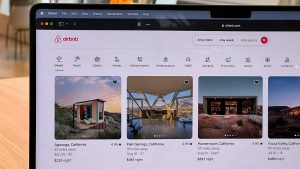Published on November 18, 2025
In late 2025 a series of U.S. government announcements sparked online claims that New York, Texas, Miami, Las Vegas and Los Angeles would bar Latin American tourists. Sensational posts warned that individual states would demand costly bonds and impose extra interviews. None of these rumours are accurate. Under the U.S. Constitution, immigration is a federal responsibility; states cannot issue visas or deny entry. The changes taking effect in 2026 stem from presidential proclamations and State Department rules focused on national security and enforcement. This article summarises those federal measures—such as a proclamation targeting a few countries, an end to most interview waivers, a bond pilot for six African nations, and a still‑pending fee proposal—and clarifies that only a few Latin American citizens are directly affected. Practical advice is provided for travellers.
Federal Authority and State Roles
Immigration policy is a federal matter. Congress sets visa categories and fees; the Department of State (DOS) processes visa applications through its embassies and consulates; and the Department of Homeland Security (DHS) handles border inspections. States and municipalities cannot create their own visa rules or entry restrictions. When travellers pass through airports in New York, Texas, Florida, Nevada or California, they encounter federal officers enforcing uniform federal laws. The only recent policy designating particular U.S. airports—Boston, New York and Washington D.C.—applies to nationals from specific African countries under a pilot bond program (see below). No such federal rule singles out Texas, Miami, Las Vegas or Los Angeles for special screening of Latin American visitors. Misinterpreting federal programs as state actions fuels confusion.
Advertisement
June 2025 Proclamation: Haiti, Cuba and Venezuela
Advertisement
On 4 June 2025 President Donald J. Trump signed a proclamation restricting visa issuance for nationals of 19 countries with high overstay rates or weak identity‑management systems. Twelve countries are subject to a full suspension of visas, meaning their citizens cannot receive new immigrant or non‑immigrant visas except under narrow exceptions. Among Latin American nations only Haiti appears on this list, so Haitian citizens without valid visas are generally barred from obtaining new visas.
The proclamation also imposes a partial suspension on seven countries. Citizens of these countries—including Cuba and Venezuela—cannot obtain B‑1/B‑2 visitor visas, F/M student visas, J exchange visas or immigrant visas, but they may still apply for other non‑immigrant categories such as work or diplomatic visas. Visas issued before 9 June 2025 remain valid. The restrictions respond to high overstay rates and poor cooperation on identity verification and repatriation. They remain until U.S. officials certify improvements.
Advertisement
Advertisement
These measures are authorised by Section 212(f) of the Immigration and Nationality Act, which empowers the President to suspend the entry of any class of aliens whose admission would be detrimental to U.S. interests. Past administrations used this authority to bar travellers from countries experiencing terrorism or disease outbreaks. Here, the focus is on immigration enforcement and security. DHS overstay reports show that Haiti, Cuba and Venezuela have some of the highest rates of overstaying B‑1/B‑2 visitor visas in the Western Hemisphere. For instance, Cuba’s visitor‑visa overstay rate greatly exceeds that of neighbouring Mexico, and Venezuelan passports are frequently forged or issued without adequate verification. Haiti lacks a centralised identification system, making it difficult to confirm applicants’ identities or criminal records. These factors, combined with each government’s limited cooperation on deportations, contributed to the decision. The proclamation nevertheless provides exceptions: immediate relatives of U.S. citizens and lawful permanent residents, adoptees, diplomats, foreign officials and certain humanitarian or national‑interest cases may still be issued visas. Dual nationals who travel on passports from countries not on the suspension list can also apply under normal procedures. Such exceptions illustrate that the policy aims to manage risk rather than impose a blanket ban.
Interview Waiver Policy: Almost Everyone Must Interview
During the pandemic U.S. consulates waived in‑person interviews for many non‑immigrant visa applicants. On 18 September 2025, the State Department announced that effective 1 October 2025 these broad waivers would end. From that date almost all applicants—including minors, seniors and those renewing tourist visas—must appear before a consular officer. Only a few narrow cases, such as diplomats or travellers renewing full‑validity visas within 12 months, remain eligible for waivers. Applicants must apply in their country of nationality or residence and have no potential ineligibility, and consular officers may still require interviews at their discretion. This change means most Latin American travellers who previously renewed visas without interviews will now need to schedule appointments. The interview requirement does not apply to travellers using ESTA.
Advertisement
Visa Bond Pilot Program: Only Six African Countries
Advertisement
In October 2025 the State Department updated a pilot program under which nationals of six African countries must post refundable bonds when applying for visitor visas. The bonds range from $5 000 to $15 000 and are returned if travellers leave on time. Participants must fly in and out of Boston, New York (JFK) or Washington Dulles. No Latin American country is part of this program. Some commentators wrongly interpreted the designated airports as a state‑level ban on Latin Americans. The requirement is federal and applies only to the listed African countries.
H.R. 1, signed in July 2025, authorises a Visa Integrity Fee of about $250 on non‑immigrant visas. The fee requires coordination among federal agencies and has not taken effect. When implemented it will apply to visa applicants but not to travellers using ESTA. As of late 2025 the government had not set a start date, so travellers should disregard rumours about imminent surcharges.
Visa Waiver Program: Only Chile Benefits
The Visa Waiver Program (VWP) lets citizens of participating countries visit the United States for up to 90 days without a visa if they obtain ESTA authorization. Only Chile represents Latin America in the program. Chilean travellers must use e‑passports and cannot work or study. Travellers who have visited or hold nationality of Cuba, Iran, Iraq, Sudan or Syria are ineligible for ESTA and must apply for visas. ESTA approvals are valid for two years, but each stay is limited to 90 days. In contrast, travellers from non‑VWP countries must apply for B‑1/B‑2 visas, which usually allow stays of up to six months but require interviews and higher fees. Citizens of Mexico, Brazil, Argentina, Colombia and other Latin American countries follow these standard procedures and are unaffected by the proclamation unless they are Haitian, Cuban or Venezuelan. Understanding the difference between ESTA and B‑1/B‑2 visas is vital for planning: ESTA is quicker and cheaper but cannot be extended or converted to another status, whereas B‑1/B‑2 visas provide flexibility but require more paperwork.
Debunking Myths About State‑Level Rules
The mix of new rules has spawned several false beliefs. First, states do not make immigration law; the only state‑linked rule is a federal requirement that bond‑program travellers use certain airports. Second, Latin Americans are not subject to a $15 000 bond; the bond program targets six African countries. Third, visa suspensions apply only to Haiti, Cuba and Venezuela; other Latin American nationals follow standard procedures. Fourth, Chile remains in the Visa Waiver Program, though Chileans with links to restricted countries must apply for visas. Finally, interview waivers are now rare, so most applicants must appear in person.
Practical Advice for Travellers
Travellers should verify their nationality (especially if they are Haitian, Cuban or Venezuelan) and consult the nearest U.S. consulate to understand any restrictions or exemptions. Because most applicants must attend interviews, it is wise to schedule appointments early, ensure passports have sufficient validity and assemble documentation showing ties to home (employment, family, property). Check official sources for updates on the pending Visa Integrity Fee. Chilean visitors should use ESTA if eligible but remember that travel to or nationality of restricted countries voids ESTA eligibility. Finally, ignore social‑media claims about state‑level bans; any special entry requirement will appear on your U.S. visa paperwork and will be issued by the federal government.
Claims that New York, Texas, Miami, Las Vegas or Los Angeles are cracking down on Latin American visitors are unfounded. The only significant changes for 2026 come from the federal government: visas are suspended entirely for Haiti and partially for Cuba and Venezuela, nearly all applicants must now attend interviews, and a bond program covers six African nations but no Latin American countries. A $250 visa integrity fee has not been implemented, and Chile remains the sole Latin American member of the Visa Waiver Program. For most travellers the process remains the same—apply for the appropriate visa, prepare for an interview and follow official guidance. Recognising that immigration authority rests with Washington, not state capitals, helps travellers ignore online myths and plan confidently.
In summary, staying informed through official sources and ignoring sensational posts is the best way to enjoy a safe and stress‑free journey to the United States in 2026.
References
The factual information used in this article comes from the following official U.S. government documents and notices:
- The Presidential Proclamation issued 4 June 2025 titled “Restricting the Entry of Foreign Nationals to Protect the United States from Foreign Terrorists and Other National Security and Public Safety Threats,” which lists countries subject to full and partial visa suspensions and explains the criteria for restrictions.
- The Travel.State.Gov notice summarising the implementation of the proclamation, including the countries affected and the effective dates of the full and partial suspensions.
- The Travel.State.Gov update of 18 September 2025 announcing that effective 1 October 2025 nearly all non‑immigrant visa applicants will require in‑person interviews, with limited exceptions for diplomats and certain visa renewals.
- The Travel.State.Gov update of 23 October 2025 listing countries subject to the visa bond pilot program, the bond amounts, and the requirement that participants enter through Boston, New York or Washington D.C. airports.
- The Federal Register notice dated 22 July 2025 explaining that the Visa Integrity Fee created by H.R. 1 requires cross‑agency coordination and will be implemented in a future publication, meaning it was not yet in effect as of late 2025.
The Travel.State.Gov page for the Visa Waiver Program, which identifies Chile as the only Latin American member and details the restrictions on travellers who have visited or hold nationality of certain countries.
Advertisement
Tags: 2026TravelRules, InterviewWaiver, LatinAmericanTravel, LatinAmericaVisaChanges, PresidentialProclamation
Advertisement
Tags: 2026TravelRules, InterviewWaiver, LatinAmericanTravel, LatinAmericaVisaChanges, PresidentialProclamation
Subscribe to our Newsletters
I want to receive travel news and trade event updates from Travel And Tour World. I have read Travel And Tour World's Privacy Notice .
Tuesday, November 18, 2025
Tuesday, November 18, 2025
Tuesday, November 18, 2025
Tuesday, November 18, 2025
Tuesday, November 18, 2025
Tuesday, November 18, 2025
Tuesday, November 18, 2025
Tuesday, November 18, 2025




